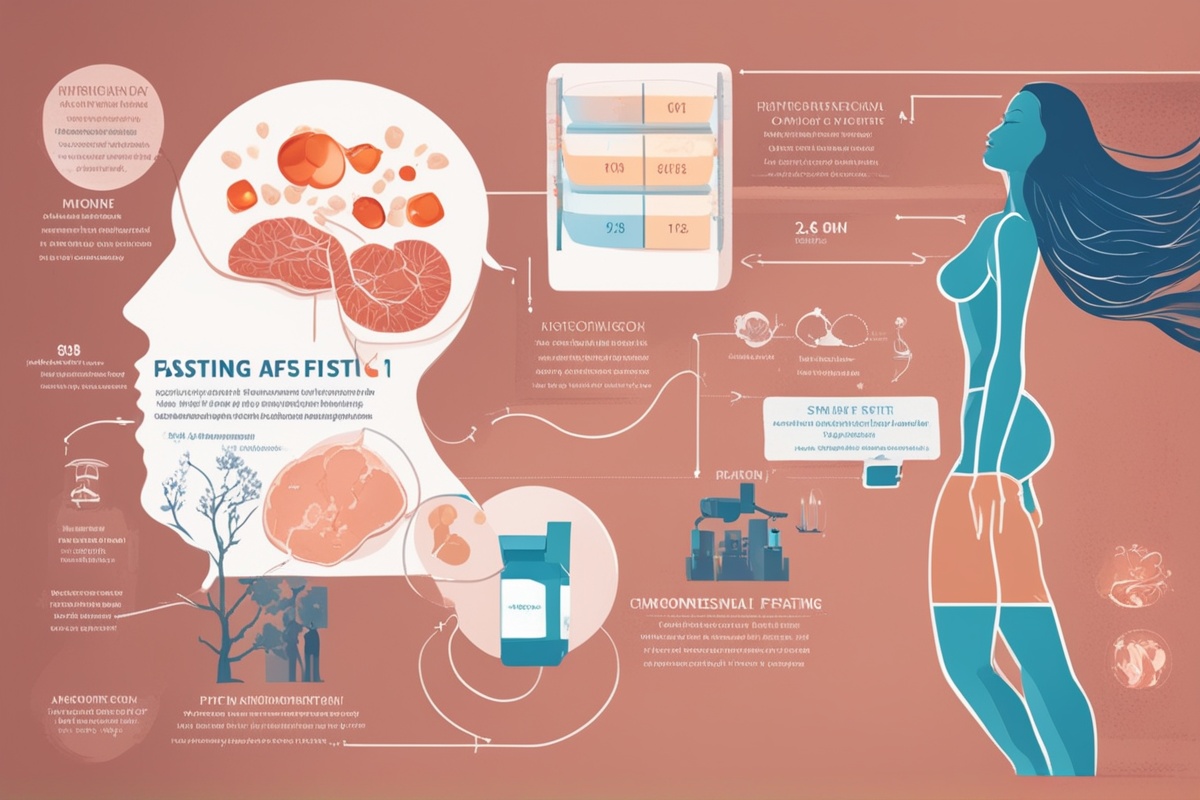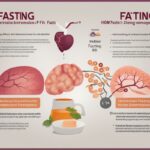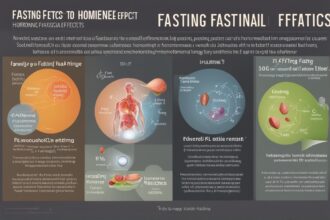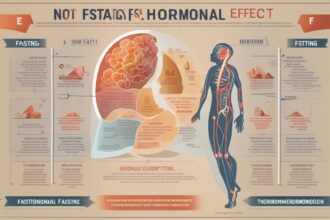fasting has surged in popularity as a powerful tool for weight loss, improved metabolism, and overall wellness. But have you ever wondered how hormones and fasting are connected? When you fast, your body undergoes a cascade of hormonal shifts that influence everything from hunger to energy levels and even long-term health. In this blog post, we’ll dive deep into the fascinating relationship between fasting and hormones, breaking down the science in an easy-to-understand way. Whether you’re a seasoned faster or just curious about intermittent fasting, you’ll find actionable insights to help you optimize your fasting journey. Let’s explore how your body’s chemical messengers adapt during fasting and why it matters for your health.
The Basics of Hormones and fasting
Hormones are the body’s signaling molecules, regulating processes like hunger, metabolism, and stress response. When you fast—whether it’s intermittent fasting (IF), a 24-hour fast, or a prolonged water fast—your body adjusts its hormonal balance to adapt to the absence of food. This isn’t just a random reaction; it’s a survival mechanism honed over millennia. Fasting triggers changes in key hormones like insulin, ghrelin, and cortisol, which play starring roles in how your body manages energy. Understanding these shifts can help you harness the benefits of fasting while minimizing potential downsides like irritability or fatigue. Let’s unpack some of the major hormonal players involved in this process.
Insulin: The Blood Sugar Regulator
Insulin, often called the “storage hormone,” is one of the most affected players in the hormones and fasting equation. When you eat, insulin levels spike to shuttle glucose from your bloodstream into cells for energy or storage. During fasting, with no incoming food, insulin levels drop significantly. This reduction allows your body to tap into stored fat for fuel—a process central to weight loss during fasting. Lower insulin also enhances insulin sensitivity over time, which is a boon for those at risk of type 2 diabetes. However, if you’re new to fasting, the initial drop in insulin might leave you feeling sluggish as your body adjusts to burning fat instead of carbs.
Ghrelin and Leptin: The Hunger and Satiety Duo
Ever wonder why you feel ravenous on some fasting days and surprisingly fine on others? Blame ghrelin and leptin, the dynamic duo of appetite control. Ghrelin, known as the “hunger hormone,” rises during fasting, signaling your brain that it’s time to eat. Interestingly, studies show ghrelin levels often peak early in a fast and then stabilize, which explains why hunger can fade after the first few hours. On the flip side, leptin—the “satiety hormone”—decreases during extended fasting, as it’s tied to fat stores and energy availability. Balancing these fasting hormone changes can be tricky, but with practice, your body adapts, making fasting feel more natural.
Here are some practical tips to manage hunger hormones during fasting:
- Stay hydrated—drinking water can temporarily quiet ghrelin signals.
- Break your fast with protein-rich foods to boost leptin and curb overeating.
- Get enough sleep, as poor rest can spike ghrelin and disrupt appetite control.
- Distract yourself during hunger waves with light activity or meditation.
Cortisol and Stress: A Double-Edged Sword
Fasting doesn’t just impact metabolic hormones; it also influences stress hormones like cortisol. Cortisol, produced by your adrenal glands, helps regulate energy by mobilizing glucose during fasting. In short fasts, cortisol can rise slightly to keep you alert and energized. However, during prolonged fasting or if you’re overly stressed, elevated cortisol might lead to irritability or even muscle breakdown as the body seeks alternative fuel sources. Managing stress is key when exploring hormonal balance during fasting. Practices like deep breathing or gentle yoga can help keep cortisol in check, ensuring fasting supports rather than hinders your well-being.
Human Growth Hormone (HGH): The Repair Booster
One of the most exciting benefits of fasting is its effect on Human Growth Hormone (HGH), often dubbed the “anti-aging hormone.” HGH levels can increase dramatically during fasting—sometimes by as much as fivefold, according to research. This hormone supports tissue repair, muscle growth, and fat metabolism, making it a key player in fasting’s regenerative effects. Elevated HGH during fasting also ties into autophagy, the cellular cleanup process that’s a hot topic in longevity science. To maximize this benefit, ensure you’re fasting for at least 12–16 hours, as HGH spikes are most pronounced after this window. It’s a natural way to support recovery and vitality without supplements or expensive treatments.
Navigating Hormonal Challenges During Fasting
While the interplay of hormones and fasting offers incredible benefits, it’s not always smooth sailing. Hormonal fluctuations can lead to side effects like mood swings, low energy, or disrupted sleep, especially for women whose cycles make them more sensitive to fasting-induced changes in estrogen and progesterone. If you’re new to fasting or have a medical condition like hypothyroidism, it’s wise to start slow and monitor how your body responds. Consulting a healthcare provider can also help tailor fasting to your unique hormonal profile. Below are some strategies to ease the transition and support hormonal harmony:
- Start with shorter fasting windows (e.g., 12:12) before progressing to 16:8 or longer.
- Avoid overtraining during fasts, as it can spike cortisol and disrupt hormonal balance.
- Include nutrient-dense foods like avocados and nuts when breaking your fast to support hormone production.
- Track symptoms like fatigue or irritability to identify patterns tied to fasting and hormones.
- For women, consider cycle-syncing fasting—fast less intensely during the luteal phase if needed.
In wrapping up, it’s clear that hormones and fasting share a profound connection that can shape your health in remarkable ways. From insulin’s role in fat-burning to HGH’s repair-boosting effects, fasting triggers a symphony of hormonal responses that, when understood and managed, can enhance your wellness journey. The key is to listen to your body, start gradually, and make adjustments based on how you feel. Whether your goal is weight loss, mental clarity, or longevity, tuning into these fasting hormone changes empowers you to fast smarter, not harder. Have you noticed hormonal shifts during your fasting practice? Share your experiences in the comments—we’d love to hear how fasting has impacted your health!






